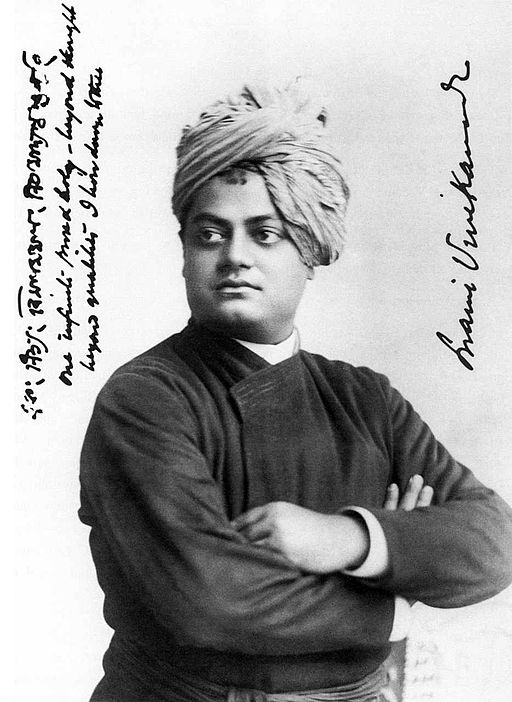Nationalism and Swami Vivekananda
- In History & Culture
- 10:58 AM, Nov 07, 2015
- Ranabir Bhattacharyya
Nationalism in India has always been hit hard by varied interpretations. Be it majoritarian dominance or minority appeasement, true nationalism has been a back bencher in the turbulent years of the erratic scam-prone UPA era. The recent Sahitya Academy Award controversy has yet again exposed the case of 'convenient nationalism' from psuedo patriots of India. Whether an individual is patriotic or not in the true sense of nationalism is , without a doubt , a subjective point of view. Mere sloganeering or cheering out 'Bharat Mata ki Jai' or 'Jai Ho' is a far cry from being dedicated or concerned for the motherland. But, the relevance of naitonalism remains intact from the days of Swami Vivekananda to Narendra Modi. There is no scripted or planned walk or path to enlighten the country which Netaji Subhas Chandra Bose or Rabindranath Tagore or Chittaranjan Das chose; certainly the theme remains same, where nationalism gives maximum importance to the welfare of the country irrespective of all real and virtual differences. One cannot deny the fact that the Indian nationalism was recognised way back in 1893 in Chicago when Swami Vivekananda introduced Hinduism at the Parliament of the World's Religions. Well, present pseudo liberals in India may be extremely allergic to utter Hinduism, but a century back Swami Vivekananda demonstrated how Hinduism can trigger nationalism in the best benefits of the country, elevating Hinduism from the misinterpretations of narrow communalism.
In his 'Vision of one India’ Swami Vivekananda rightly said," "At Cape Camorin sitting in Mother Kumari's temple, sitting on the last bit of Indian rock—I hit upon a plan: We are so many sanyasis wandering about, and teaching the people metaphysics—it is all madness. Did not our Gurudeva say, 'An empty stomach is no good for religion?' We as a nation have lost our individuality and that is the cause of all mischief in India. We have to raise the masses”
The theory of nationalism according to Swami Vivekananda is deep. Certainly it stresses on the fact that religion can be both instrumental and a strong creative force in national integration. The religion which is stressed here is absolutely different from the dogmas or the customs practiced today. Swamiji rather stressed on reaching stability to strengthen political unity of India. Here it is to be noted; that 'religion' didn't mean the rise of Hindu dominance, and rather it was attaining spiritualism through the realms of Hinduism, the way of life. There is indeed a great difference between Oriental Nationalism and Western Nationalism. Western nationalism stresses on theoretical secularism whereas Swamiji's nationalism is based on the Indian way of life, which is concerned with the Indian masses, right from the poorest of the poor to the privileged of the society. Freedom of mind is thus an utmost feature which can elevate one from the inner conflicts. Indeed, Swamiji believed that the passion and love for the well being of the country can bring in the so called change. Let's not forget that Swami Vivekananda was born when the British were exploiting the Indians. Swamiji not only called for freedom from the foreign forces but also internal freedom.
There is obviously huge difference between what is presently practiced in the name of Hinduism and what Swami Vivekananda propagated in his life. Swamiji's Guru Ramakrishna believed in 'Advaita Vedanta', in other words, that which can be termed as identifying with the absolute. Both Ramakrishna and Swami Vivekananda believed that power is within everyone but one has to liberate and channelize that in the right direction. Incidentally, Advaita Vedanta doesn't discriminate anyone on the basis of caste or religion, rather considers every man and woman to be equal on the earth. Swami Vivekananda in his early days was hugely influenced by the Brahmo Samaj which propounded on Unitarianism, but meeting Ramakrishna changed his life altogether. Even in his Chicago speech, Swami Vivekananda called for universalization of Hinduism, which took Indian nationalism to a newer level, calling for Internationalism in the Oriental line of thought. It was indeed astonishing that Swamiji, a century back called for India's progress in the world and only true nationalism can boost up his dreams of a united India. Can nationalism bring in social change? Yes! Swamiji believed that the concept of nation building is intertwined to the greatness and morality of the common people or mass. Religion or the Hinduism way of life is significant as it has the power to transform individuals for the greater good and uplift the country from the agony of casteism, communalism and all sorts of inner and outer conflicts and oppressions.
One may certainly ask how Swami Vivekananda and his nationalism are valid and much needed in contemporary India. Looking at the first two decades of this century, it is evident, in spite of India's progress in core sectors like education, health, women empowerment; the darker side of India depicts gloomy reality. Instead of following the footsteps of the great freedom fighters who sacrificed their lives for their motherland, the country is becoming a hub for separatist divisive forces. Development has been largely one sided in the last ten years of Congress regime, where tax payers' money have been looted by politicians who had been elected to serve the country. And national integration has received so many setbacks with provoked religious intolerance from power hungry political leaders who didn't spare any stone unturned to polarize Indians on the basis of religion, caste and other narrow tags. Swami Vivekananda stands supreme due to his understanding of the Indian reality. In his own life, he considered men and women to be his brothers and sisters and much before Mahatma Gandhi's harijanism, Swamiji called for zero tolerance against all sorts of divisive forces. He encouraged Indians to win over their internal individual conflicts and be a part of nation building. Present Prime Minister, Narendra Modi has also similarly emphasized time to time why India needs to follow Swamiji's words. Truly, Bharat or greater India can be a reality when the whole of India prays and works for the development of India. True nationalism can simply prosper then reinstating India in a position where Swamiji dreamt in his days.







Comments